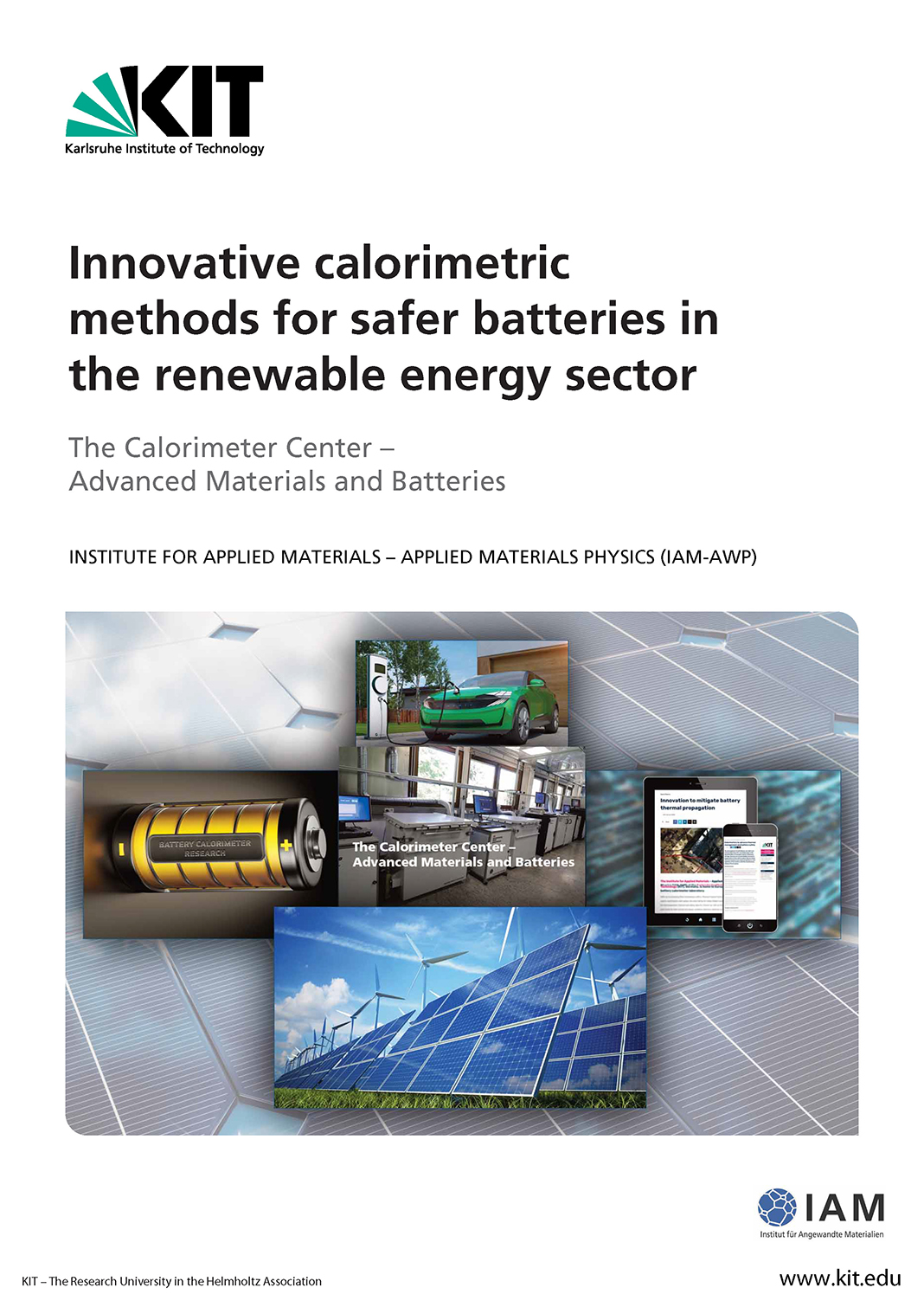Karlsruhe Institute of Technology’s latest eBook discusses the major successes of the Calorimeter Center’s Batteries – Calorimetry and Safety group.
In this eBook, entitle ‘Innovative calorimetric methods for safer batteries in the renewable energy sector’, Dr Carlos Ziebert, leader of the group Batteries – Calorimetry and Safety, discusses the group’s calorimetric studies and safety tests on lithium-ion cells and post-lithium cells.
The group, which was founded in February 2020 at KIT’s Applied Materials – Applied Materials Physics, is interdisciplinary and well connected across both Germany and Europe and pursues a comprehensive approach that ranges from basic studies to industrial applications. Their latest eBook discusses:
You can also learn about the group’s first national project, AnaLiBa (Analytics of Lithium-Ion-Batteries) in the new competence cluster Analytics/quality assurance (AQua), which will start on 1 January 2021. Ziebert also discusses the group’s participation in the European project HELIOS (High-pErformance moduLar battery packs for sustainable urban electrOmobility Services), which will also begin on 01 January 2021.
About the Institute of Applied Materials – Applied Materials Physics’ Battery Calorimeter Center
Established in 2011, the Battery Calorimeter Center at the Karlsruhe Institute of Technology’s (KIT) Institute for Applied Materials – Applied Materials Physics now operates Europe’s largest battery calorimeter laboratory.
It provides six Accelerating Rate Calorimeters (ARCs) of different sizes – from coin to large pouch or prismatic automotive format – in combination with cyclers, which allow the evaluation of thermodynamic, thermal and safety data for lithium-ion cells on material, cell, and pack level under adiabatic and isoperibolic environments for both normal and abuse conditions (thermal, electrical, mechanical).
With these facilities and the established technical and methodological expertise, the IAM-AWP is now – seen worldwide – one of the few institutions that investigate both the thermodynamics and the safety of batteries and their materials. The results of these investigations can be used on all levels of the value chain – from the safe design on materials level up to the thermal management and the adaptation of safety systems.


